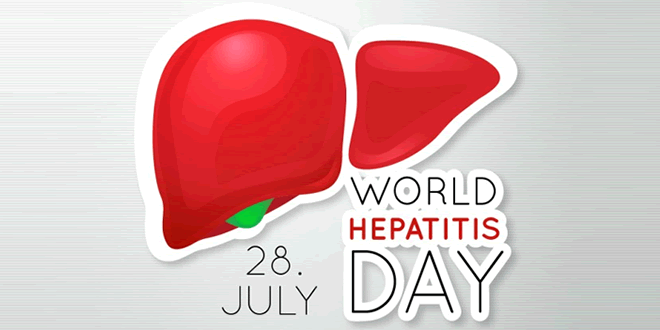World Hepatitis Day, observed every year on July 28, serves as a global reminder to raise awareness about viral hepatitis — a group of infectious diseases that pose a significant threat to liver health worldwide. Organized by the World Health Organization (WHO) and global health communities, this day is dedicated to encouraging education, testing, prevention, and treatment for Hepatitis A, B, C, D, and E.
The 2025 theme focuses on “Hepatitis Can’t Wait”, urging governments and individuals to act swiftly and prevent the silent progression of this deadly disease.

What Is Hepatitis?
Hepatitis refers to the inflammation of the liver, commonly caused by viral infections. There are five primary types of hepatitis viruses:
- Hepatitis A & E: Usually spread through contaminated food or water.
- Hepatitis B, C & D: Primarily transmitted through blood, unsafe injections, sexual contact, or from mother to child during childbirth.
Many forms of hepatitis can remain asymptomatic for years, making early diagnosis and regular screening vital.
Risk Factors That Increase Hepatitis Vulnerability
Being aware of these risk factors can help prevent infection and allow for timely intervention:
1. Unsafe Medical Practices
- Reuse of needles or syringes
- Poor sterilization of medical equipment
- Unsafe blood transfusions
2. Unprotected Sexual Activity
- Engaging in unprotected sex or with multiple partners raises the risk of Hepatitis B and C.
3. Personal Hygiene Habits
- Sharing razors, toothbrushes, or nail cutters can transmit viruses through microscopic blood contact.
4. Contaminated Food and Water
- Especially for Hepatitis A and E, consuming food or water that isn’t properly cooked or filtered is a major cause.
5. Healthcare Occupation
- Health workers are at high risk due to accidental exposure to infected blood or body fluids.
6. Lack of Vaccination
- Absence of immunization, especially against Hepatitis A and B, increases susceptibility.
How to Take Care of Liver Health in Today’s Fast-Paced Lifestyle
Modern living comes with unique health challenges—processed foods, sedentary routines, alcohol use, and stress can all impact liver function. Here’s how to maintain liver health and protect against hepatitis:
Get Vaccinated
Vaccines for Hepatitis A and B are safe and highly effective. Consult your doctor, especially if you travel frequently or work in healthcare.
Practice Safe Sex
Use protection during sexual activity and get regularly tested, especially if you have multiple partners.
Avoid Sharing Personal Items
Keep razors, toothbrushes, nail clippers, and injection tools personal and sterile.
Maintain Proper Hygiene
Wash hands before meals and after using the restroom. Drink purified or boiled water when hygiene is questionable.
Screen Regularly
If you are in a high-risk group—healthcare worker, dialysis patient, or born to an infected mother—get regular liver function tests and hepatitis screening.
Limit Alcohol and Processed Foods
Excessive alcohol can severely damage the liver. Eat fresh, homemade food and stay hydrated.
Choose Safe Medical Services
Ensure injections, dental tools, and surgical equipment are properly sterilized.
Why Awareness Matters
According to WHO, an estimated 325 million people worldwide live with chronic hepatitis B or C, yet many remain undiagnosed and untreated. If not addressed, hepatitis can lead to cirrhosis, liver cancer, or liver failure.
By raising awareness, encouraging vaccination, promoting healthy lifestyle choices, and expanding access to treatment, the global burden of hepatitis can be significantly reduced.
Disclaimer:
This article is for general informational purposes only and should not be taken as medical advice. Please consult a licensed healthcare professional for accurate diagnosis, vaccinations, and treatments.
